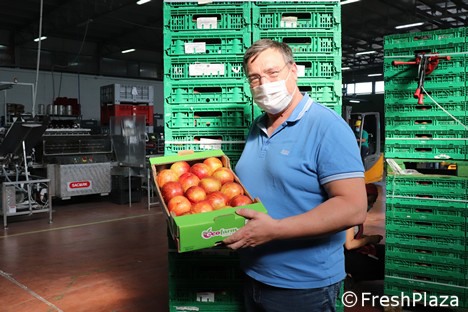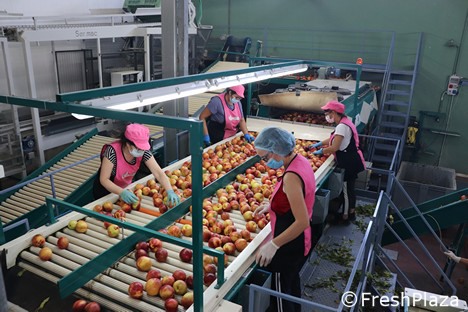"The significant data in this period of crisis is that the increases in production costs cannot be transferred to sales prices, especially for those like us producing perishable goods," reports Maurizio Fiorenza, sales manager at EcoFarm Italia.
 Maurizio Fiorenza in a 2020 archive photo
Maurizio Fiorenza in a 2020 archive photo
"The increases in production costs and the slowdown when it comes to consumption are putting many companies on their knees, we risk seeing them go bankrupt and close down. Even we, a well-structured company, are currently working at a loss to deal with the crisis. But how long can we go on like this? Not to mention that peaches are actually abundant in all domestic production areas unlike last year, when Sicily was practically the only region with a discrete supply of late produce."

"In addition, after two years marked by the pandemic, Italian families did not want to renounce their summer holidays this year. However, now that they are back home, it will be difficult for them to bear the cost of bill increases and all the rest. There will therefore probably be a change in habits, as people will purchase only primary goods. The rising inflation rate will do the rest. In this scenario, it will be difficult to find the normalcy of the lifestyle we used to lead."
"While the first part of the grape season ended without praise or blame, the Italia grape campaign is what is worrying us, as consumption is hindered by the presence of summer fruit such as peaches, which cost 60-70 eurocents at production. These quotations are not enough to make up for all the increases in the price of energy for irrigation, fuel for traction, fertilizers and plant protection products. The latter, in particular, when they are suitable for sustainable cultivation like the ones we use, are much more expensive than the traditional ones."
"The commercial policies of big retail chains tend to push sales with special promotions specific for peaches due to their abundance and relegate table grapes to the second or third place, thus penalizing the value of both products."
For further information: ![]()
O.P. Eco Farm s.r.l.
Sede Legale: Viale della Regione, 232
93100 Caltanissetta
Stabilimenti: C.da Judeca
93011 Butera (CL)
+39 0934 921558
info@ecofarmitalia.com
www.ecofarmitalia.com
